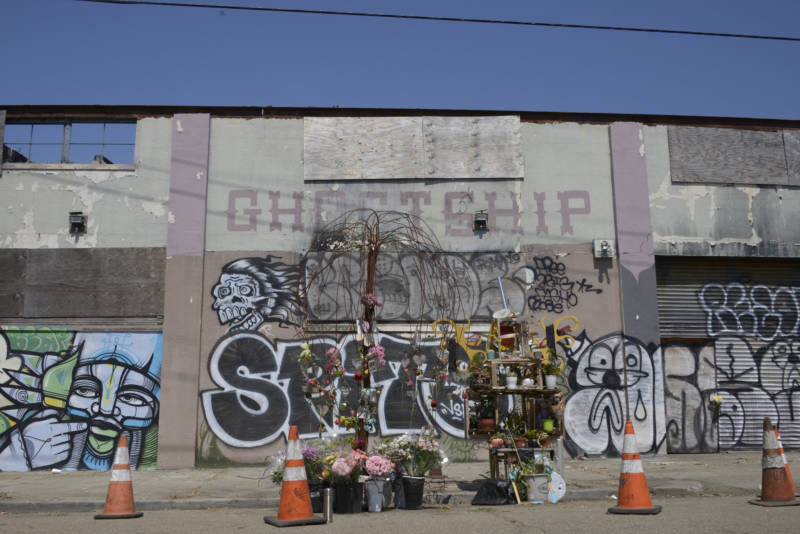Harris also said he didn’t want to block the people who were coming down a set of stairs during the fire.
Harris said in testimony Wednesday that he had grabbed a fire extinguisher from his living space after he noticed the fire in the back of the warehouse, but said the extinguisher spray couldn’t reach the fire.
After dropping the extinguisher, Harris said he grabbed his cellphone and laptop and began running back and forth in a hallway, yelling to warn people of the fire. He said he did that for at least several minutes and then left the building to stand near a doorway and shine a light through it as a signal to people who still might be inside.
In his testimony Wednesday, Harris also reversed earlier statements he had made to investigators about whether the rear stairs of the warehouse were blocked on the night it burned down.
Harris told the court that the rear stairs were, in fact, not blocked, and that previous information he had given to investigators was based on incorrect information at the time.
James played video for the jury of Harris telling investigators six months after the fire — and after his arrest — that the rear stairs to the second floor were blocked near the bottom.
But in court, Harris responded to James’ questioning by saying that his understanding of the situation was not correct in the aftermath of the fire.
“I relayed my understanding at the time, which I now know is not accurate,” Harris said in court. “I heard a lot of misinformation after this first happened.”
Harris said he was also trying to be helpful to investigators at the time and that much of his misunderstanding had been corrected after hearing testimony and information about people using the stairs on the night of the blaze.
Harris and master tenant Derick Almena face 36 involuntary manslaughter charges stemming from the blaze in the unpermitted Oakland residence and performance venue on the night of an electronic music party.
Prosecutors argue that Harris and Almena illegally converted the warehouse into an unsafe living space stuffed with flammable materials and lacking proper safety measures like fire alarms, well-lit exits and sprinkler systems. Defense attorneys argue the blaze was started by an act of arson.
Harris answered a line of questioning from James about whether he had shown guests where exits were located in the warehouse.
Harris responded that he didn’t feel compelled to point out exits or the location of the rear or front sets of stairs. He said his understanding was that everyone knew where the stairs were.
“I wouldn’t be expecting something to happen,” Harris said. The exits were clear, he said, and one of them had an exit sign, but it was not lit.

